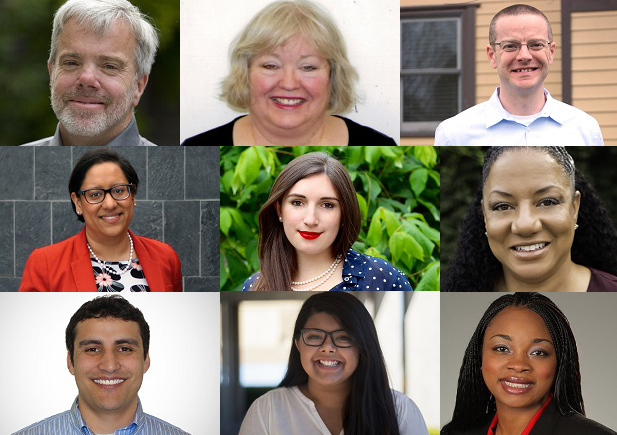 |
About two dozen organizations will share $69 million in grants from the Bill & Melinda Gates Foundation to help double the number of low-income students who graduate from college, the foundation announced Tuesday.
The money comes at a dire time in American education, with college completion rates for young people lagging compared with the rates of past decades in the United States, and compared with current rates in many other countries.
“This is going to give us the resources we need to better engage young people directly,” said Tamara Draut, vice president of policy and programs at New York-based Demos, a public policy research and advocacy organization that will receive $600,000 to run a two-year project to build government support for efforts to eliminate financial barriers that young people face in completing college.
Draut’s comments were echoed by Judy Karasik, director of development for The Corps Network, which is comprised of 140 service corps organizations. The network will receive $750,000 to support a business plan over the next year to grow youth service and conservation corps as part of a strategy to help get “disconnected” young people through college and into work.
The money “could not have come at a better time,” Karasik said, referring to President-elect Barack Obama’s pledge to expand community service efforts.
“This is not just a smart strategy for disadvantaged people,” Karasik said of the initiatives funded under the new grants. “It’s a smart strategy for any young person.”
The American Youth Work Center, which publishes Youth Today, is among the recipients. It will use $750,000 over three years to expand its coverage of efforts to increase the number of youths who obtain postsecondary credentials that enable them to secure meaningful work.
Other grant recipients include:
Center for Law and Social Policy, Washington, D.C. – $400,000 over one year to help reform federal and state postsecondary education policy in order to help low-income adults earn marketable postsecondary credentials.
Institute for Women’s Policy Research, Washington, D.C. – $187,475 over one year to examine policies, promising practices and child care needs to help low-income, young adults who are single parents complete college.
Jobs for America’s Graduates, Alexandria, Va. – $50,000 over one year to support a “thought leader symposium” of public and private leaders, who will craft a plan to make better use of proven solutions for “closing the gap in education and workforce outcomes for at-risk minority youth.”
The National Center for Public Policy and Higher Education, San Jose, Calif. – $5.4 million over three years for the publication and dissemination of the center’s 2008 Measuring Up report, which profiles state performance in higher education affordability, completion rates and other areas.
The Future of Children, Princeton, N.J. – $892,667 over four years to produce and distribute four journals that deal with disadvantaged youth.
Public Agenda, New York – $469,954 over one year to conduct a nationwide “opinion research project” that will examine the aspirations and obstacles for young people regarding postsecondary education.
Western Interstate Commission for Higher Education, Boulder, Col. – $212,150 over one year to convene a meeting of state leaders to help them create longitudinal data systems that link education with work force data for public policy analysis and development.
The Georgetown University Center on Education and the Workforce, Washington, D.C. – $2.9 million over four years to expand merit-based opportunities for all by aligning education and work force demands.
Harvard College, Cambridge, Mass. – $1.9 million over four years to support a four-year quantitative research project focused on college enrollment and completion.
Jobs For the Future, Boston – $3.3 million over three years to build on the advances of the Breaking Through initiative – a program meant to help low-income, low-skilled young adults secure family-sustaining work, and to accelerate the scaling up of postsecondary “on-ramps” and supports.
Learning Point Associates, Chicago – $879,868 over three years to conduct research that compares for-profits and public two-year colleges on short-term and long-term labor market outcomes, as well as specific program structuring and job-placement practices.
MDC, Chapel Hill, N.C. – $16.5 million over four years to identify the most promising work in remedial education.
University of California, Los Angeles – $7.6 million over five years to research opportunities and obstacles on the path to postsecondary education for low-income young adults.
Workforce Strategy Center, New York – $208,900 over one year to research effective employer engagement models throughout the country.
The Forum for Youth Investment, Washington, D.C. – $1.2 million over three years to identify and cultivate opportunities to affirm the importance of postsecondary credentials for low-income and disconnected youth.
MDRC, New York – $13 million over four years to expand its Performance-Based Scholarship Demonstration, which provides low-income students with scholarships that are tied to attendance and academic performance.
National Youth Employment Coalition, Washington, D.C. – $5.6 million over four years to establish a pilot effort to build the capacity of a small network of organizations to support low-income youth and young adults in attaining postsecondary credentials.
Ounce of Prevention Fund, Chicago – $305,719 over one year to study existing supports for and barriers to post-secondary education among young, low-income parents in Chicago, Denver and Miami, and to design a pilot intervention program that uses early childhood education centers to support parents’ continuing educational development.
YouthBuild USA, Somerville, Mass. – $6 million over three years to provide technical assistance, training, funding and support to seven YouthBuild programs in engaging 1,500 low-income youth who have dropped out of school to earn GEDs or high school diplomas and to attain postsecondary credentials.





























